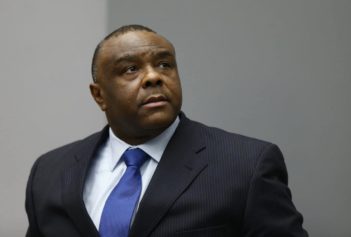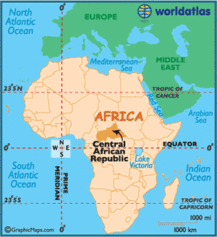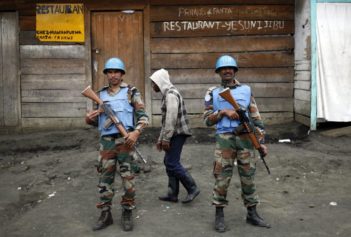While the president of the Central African Republic, Francois Bozize, has said he is willing to share power with the rebels that are gradually taking control of his country, the chairwoman of the African Union is warning the rebels that they will face sanctions and complete isolation if they try to seize power by force.
Nkosazana Dlamini Zuma, chairwoman of the AU, urged the CAR armed rebels to end to their military offensive and to begin dialogue to find a solution to CAR’s longstanding instability.
Bordering the troubled nations of Sudan and the Congo, the Central African Republic (CAR) is yet another nation in central Africa where government is struggling to hold onto power in the face of aggression from rebels. With a population of about 4.4 million, CAR is a former French colony that has experienced considerable political discord since winning its independence in 1960. It wasn’t until 1993 that the country held its first multi-party democratic elections, after being ruled by a series of military leaders who took power by force.
Though the current president, General Bozize, won democratic elections in 2005 and again in 2011, he actually came to power by force in 2003, overthrowing the previous president Ange-Félix Patassé. With such a history, it doesn’t come as a surprise to many that a new generation of rebels has emerged to try to seize power from Bozize.
The rebel group, known as Seleka, made up of factions from three former armed groups, accuses Bozize of failing to honor a 2007 peace deal that stipulated they would be paid if they laid down their arms.
CAR has an abundance of mineral resources such as oil, gold and diamonds, but much of it is bought and sold in an underground black market that does not benefit most of CAR, considered one of the poorest countries in the world—though its Human Development Index ranking of 179 out of 187 countries is considered deceptive because so many CAR residents sell their excess food crops and the alcohol that many women make from excess food on a black market.
“I am ready to form a government of national unity with Seleka to run the country together, because I am a democrat,” Bozize said during a news conference following the meeting with Boni, according to Reuters.
At a meeting in Gabon on Friday of the 10-nation Economic Community of Central African States, ECCAS agreed to send forces to CAR, but did not did not specify how many troops would be sent or how quickly the military assistance would arrive.
After the debacle in Libya, where four Americans were killed, including U.S. ambassador Chris Stevens, the U.S. evacuated about 40 people, including the U.S. ambassador, from Bangui on an U.S. Air Force plane bound for Kenya.
There are already U.S. special forces in the country assisting in the hunt for Joseph Kony, the fugitive rebel leader of another rebel group known as the Lord’s Resistance Army. The U.S. special forces remain in the country, the U.S. military’s Africa Command said from its headquarters in Stuttgart, Germany.


